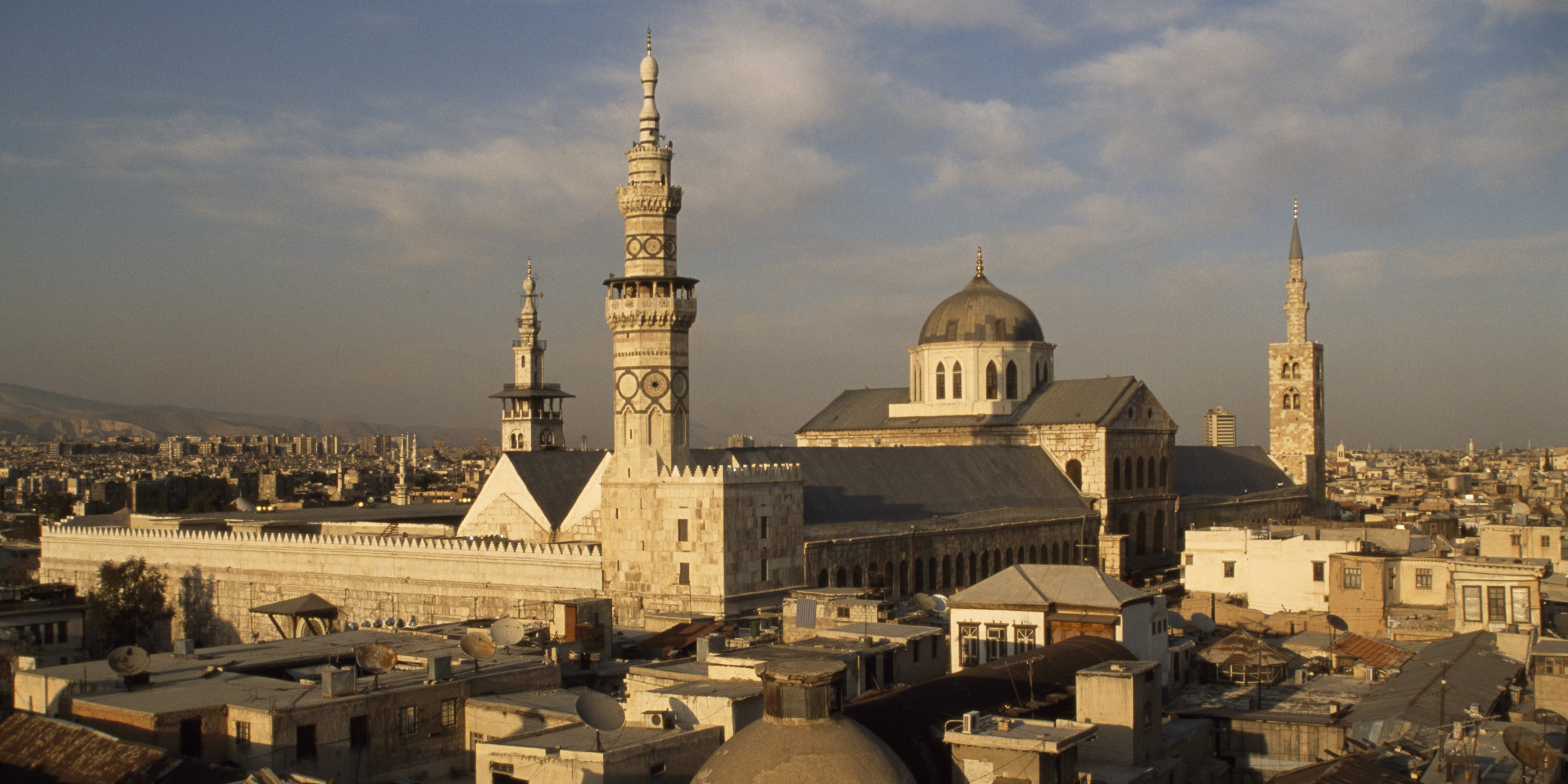OPINION by Jamal Doumani – Visit, as I did recently, the Metropolitan Museum of Art in New York (The Met, to New Yorkers), the largest art museum in the US and one of the 10 largest in the world. Seek out its permanent collection of Islamic art, a trove of 12,000 objects dating back from the 7th to the 19th centuries. Then stand before the Damascus Room and see if you can hold back your tears.
The Damascus Room recreates a residential reception area, or qa’a, complete with splendidly decorated woodwork on its ceiling and walls. An inscription dates the woodwork to the first 100 years of the Ottoman era, when Damascus was an international nexus to which people traveled to study in its famous madrasas and its renowned sanctuaries. It was a time when palatial residences, with courtyards that often included fountains fed by underground channels that had watered the city since antiquity, stood alongside bath-houses, mausoleums and places of worship.
And towering above was the minaret of the Ommayad Mosque, in the heart of a metropolis that never failed to give off its intellectual effusions and, in later years, to be at the vanguard of the Arab national struggle against colonial overlords.
This week, as Syria enters its fifth year of conflict, we are reminded that the country of which Damascus is the capital is now a basket case, with a thuggish government and a despotic head of state who have killed, at last count, 215,000 Syrians, caused the displacement of half the population — who have fled home and homeland to the surrounding countries and, in recent months, began to take exceedingly hazardous trips across the Mediterranean to flee to Europe — the mass destruction of whole cities and brought about such chaos in large expanses of the land that demented extremists like members of the so-called Islamic State (IS) were able to establish footholds with impressive ease. And when you stand, as I did, contemplating the Damascus Room at the Met, an onrush of desperate thoughts — and, I confess shamefacedly, of tears — will weigh heavily on you. What has gone wrong? Why has the international community, obsessed as it is with the excesses of IS, put the fate of Syria and its crushed people on the back-burner — for, lest we forget, the barrel bombs are still being dropped and innocent civilians are still being killed and maimed? Why has the UN Security Council, which a year ago passed a resolution on Syria calling for free access to humanitarian aid — a resolution merely calling for the delivery of food to hungry civilians — failed to follow through on enforcing it, especially after a coalition of 21 aid groups issued a report recently saying that the UN appears to have failed in making much difference?
And, yes, US Secretary of State John Kerry said in an interview earlier this week, while attending an investment conference at the Red Sea resort town of Sharm El-Sheikh aimed at reviving the Egyptian economy, that the plight of Syrians was “one of the worst tragedies any of us have ever seen” and “we are working very hard with other interested parties to see if we can reignite a diplomatic outcome.” Talk is cheap, Mr. Kerry, especially diplo-babble talk like that.
What Syria’s thuggish rulers have done — and make no mistake here, plan on continuing to do — is not just cause the displacement and pauperization of well over 7 million Syrians. They have virtually destroyed Syrian culture and the Syrian people’s long-held notions of nationhood — their self-definitions and the values that for generations had embodied their conception of what constitutes a humane social order.
Sever a people from the locale where all this had originated and been anchored, and you sever them from their sense of self — in short, from the geography of their soul and the symbolic constructs of their culture. You cannot reassemble the ethos of your culture in a refugee camp, living on food handouts, while cold, miserable and destitute.
That is why the sub-text of the Syrian conflict is that, yes, while we decry the violence inflicted on the population, cultural debilitation is just as destructive — and insidious — for when one’s culture is destroyed so is a core of one’s humanity.
I recommended that you visit the Damascus Room next time you are in New York in order that you may contemplate the exquisite contours of the Damascus Room. Don’t do it, however, if you are, like me, an emotional individual given to historical self-flagellation, a lashing out by his choked psyche with tears.
The Damascus Room will only remind you of the estrangement between the shaping forces of spirit in our past and the thwarted energy of dreams in our present. Ought one to go further, as we consider the unspeakable, the fifth year of war in Syria? Arab News






 WhatsApp us
WhatsApp us 


1 comment
no doubt assad is guilty of much as you say, but your anger is misdirected, the uprising started normally as in other countries, but then ruffians no better than assad decided to take military and other help from the usa eu saudia gulf states turkey etc, they were no less brutal including chemical warfare etc, soon as predicted by many because everyone knows what chick will grow into which bird, the fsa morphed int al nusra isil isis is etc, salafi wahabi saudi taliban boko haram al nusra isis etc whats the difference? zilch !!